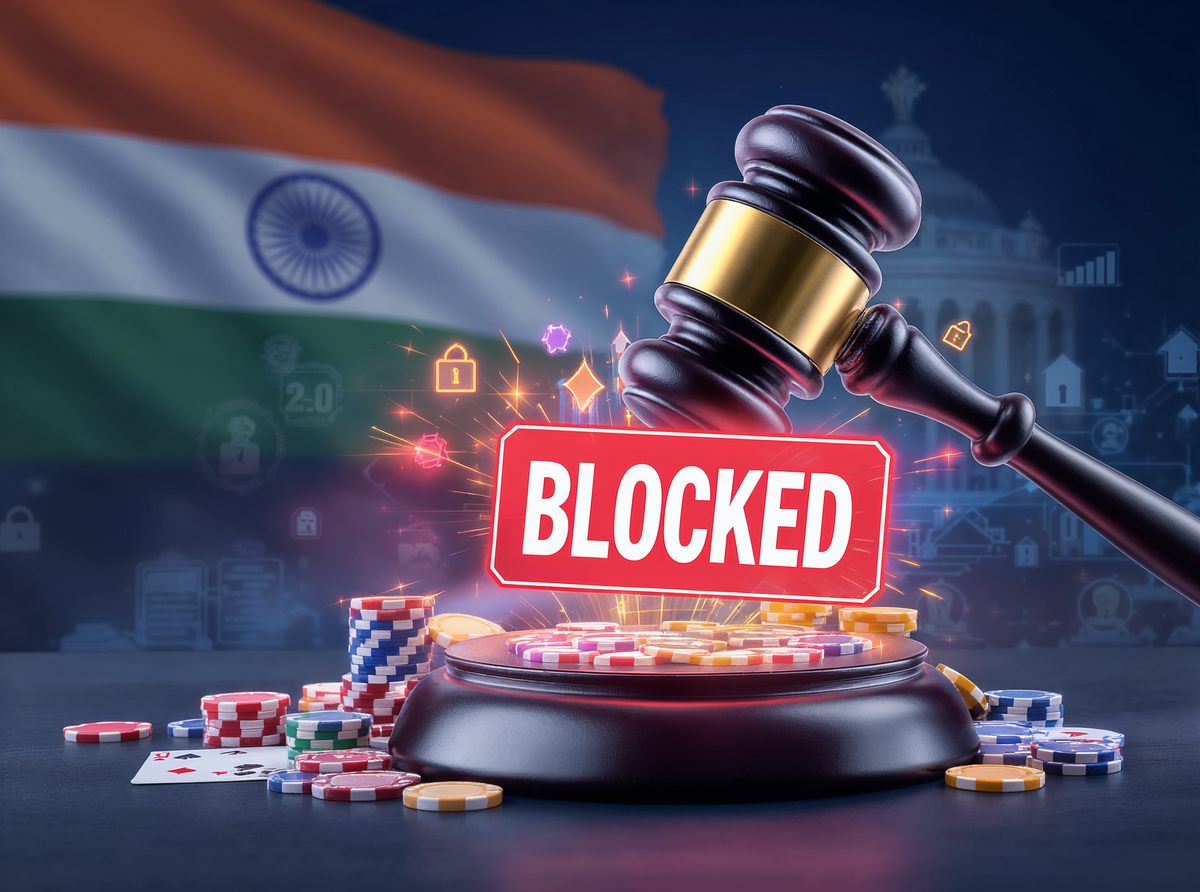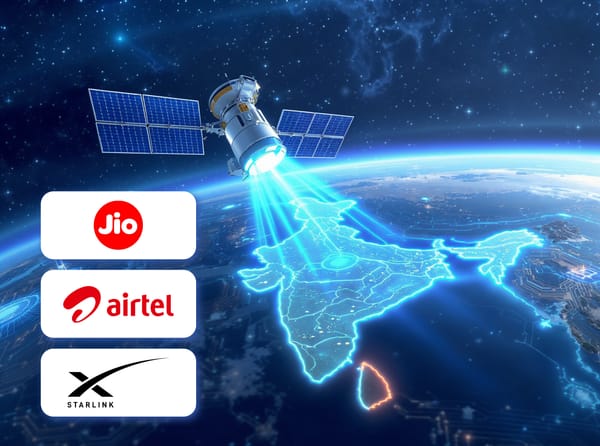What started as a mere rumour quickly grew into a full-blown crisis crumbling the whole digital entertainment landscape in India. The government has taken a measure which is not only drastic but also extreme in nature, with a total of 1524 blocking orders. This can't be seen as a simple switching-off of an 'on' button.
It is about prohibiting access to hundreds of gambling websites by sending such a colossal number of orders to ISPs all over the country. The curtain is falling on easy money for those who have shown a knack for playing the legal tightrope while seeing their industry explode in popularity.
Why the Sudden Fury? Unpacking the Government's Gambit
This decision, heavily criticized by the Ministry of Information and Communications Technology (MICT), and the Ministry of Public Safety (MPS), is indeed not something new or utterly unexpected. It has been simply propelled by rising apprehensions among the public authorities, and rising in the wake of these very same anxieties.
- The Addiction Avalanche: Decision-makers are pointing to a marked rise in gambling addiction evidenced among the young population in general. Almost invariably, the outcome is going to be tragic financial loses, anxiety and depression, the circle of friends getting broken up. The fact that you can carry the hour and time gambling machine in your pocket is thought to be the number one accelerator of the phenomenon.
- Financial Crimes & Money Laundering: The new platforms proved to be direct paths to the carrying out of offensive payments for further criminal practices as well as for money laundering. The clients have full privacy in carrying out their transactions. At the same time, if the funds are moved quickly across borders, then the anonymity of such operations makes them highly vulnerable to be used for money laundering and fraud.
- The Regulatory Quagmire: India's gambling laws are a complex patchwork. According to the Public Gambling Act, 1867, the operation and visitation of a gambling house are prohibited, but it is not entirely clear if the law online is implied. A good number of platforms are based in a completely different country where laws are different and so such platforms take advantage of the legal grey area to Indian users. The administration explains that this blocking is merely a temporary measure necessary while clearer regulations are developed.
- Protecting the Vulnerable: One of the main reasons for that is to help citizens, especially the youngsters and people with less money, to learn the right way and not to get caught by the trap of predatory practices and the high risks associated with online betting.
The House Always Wins? Industry Impact and the Shadow Economy
The scale of this step alone – 1524 orders going after numerous platforms – is very loud and clear; the authorities consider online gambling to be the most dangerous enemy of society that might have to be solved by taking radical actions.
- Immediate Disruption: The affected platforms will have to face problems of access to the enormous Indian market instantly. Their income sources will be limited, and these platforms will lose their users' attention and will even be in a position where they might no longer be able to function due to the lack of sufficient operational capability.
- The Cat-and-Mouse Game: The past shows that these operators who are very much into this business usually do not find it difficult to work around the blocks – they may do it by duplicating the sites, using virtual private networks or they may change their site names frequently. This tightening may only serve to push the sector further down, and it might prove difficult to keep track of the regulations and even enforcing them in this scenario.
- Legitimate Players Cought in the Crossfire? While the main attention is on cheaters in gambling, some fear that the huge sweeping might also unintentionally affect some legitimate gaming platforms or fantasy sports apps (that work under different legal interpretations but are often disputed). The need for it is clear.
- The Rise of the Unregulated Underbelly: In case access is blocked but demand remains, users could resort to operators who are even more unethical and unregulated as they provide no consumer protection, thus increasing the risks the government seeks to alleviate.
A Game of Whack-a-Mole? The Enforcement Challenge
While blocking websites is just one side of the story, the real challenge is how to sustain the blockade and keep the users from going around it.
- Resource Intensive: ISPs need to carry out the block and maintain it with the help of their employees who need to have some very advanced technical expertise, which in turn requires high financial support and constant monitoring to combat any new URLs or proxy services.
- VPN Proliferation: The most technically knowledgeable users can easily overcome geo-blocks by using a Virtual Private Network (VPN), thus the blocking orders will be ineffective for the majority of the target audience.
- The App Store Dilemma: While websites are blocked, gambling applications are still accessible through official stores such as Google Play and Apple's App Store. To get rid of these applications, you need to take separate steps and work together with these tech giants, which, in turn, adds to the complications.
- Global Nature of the Internet: The platforms that have come from the countries where online gambling is legal and licensed (such as Malta, Gibraltar, or Curaçao) will not just close because of the ban. They will still be coming up with new methods to attract Indian users.
The Final Hand: Regulation vs. Prohibition
The 1524-order blitz launched by India is a vivid example of a move that sends quite a powerful message.
It suggests that the authorities are greatly worried about the social and economic damages that might result from unregulated online gambling. In contrast, it also puts a spotlight on the overall conflict in the digital era: Can prohibition be successful against those online platforms which are without borders and are adaptable?
Key Takeaways:
- Unprecedented Scale: 1524 blocking orders represent the biggest coordinated action against online gambling in the history of India.
- Core Drivers: The combating addiction, financial crime, money laundering, and protecting citizens are the four main stated primary motivations.
- Legal Grey Area: The heavy-handed method highlights the urgent need for clear and modern legislation that is specifically designed for the online gambling ecosystem.
- Enforcement Hurdles: By turning to VPNs, mirror sites, and the global nature of the internet, there are significant challenges to continuous blocking.
- The Path Forward: The topic is getting more heated. Is it that an outright ban is the answer or rather a well-regulated, taxed, and monitored framework would provide not only better consumer protection but also the society at large?
The government has been very loud in its rejection of the gamble. but the game of regulating the internet is very different from the game of enforcement. The next move – towards comprehensive regulation or continued enforcement battles – will determine whether this crackdown is a winning strategy or just another round in an endless game of digital whack-a-mole. The dice are still rolling.









Member discussion